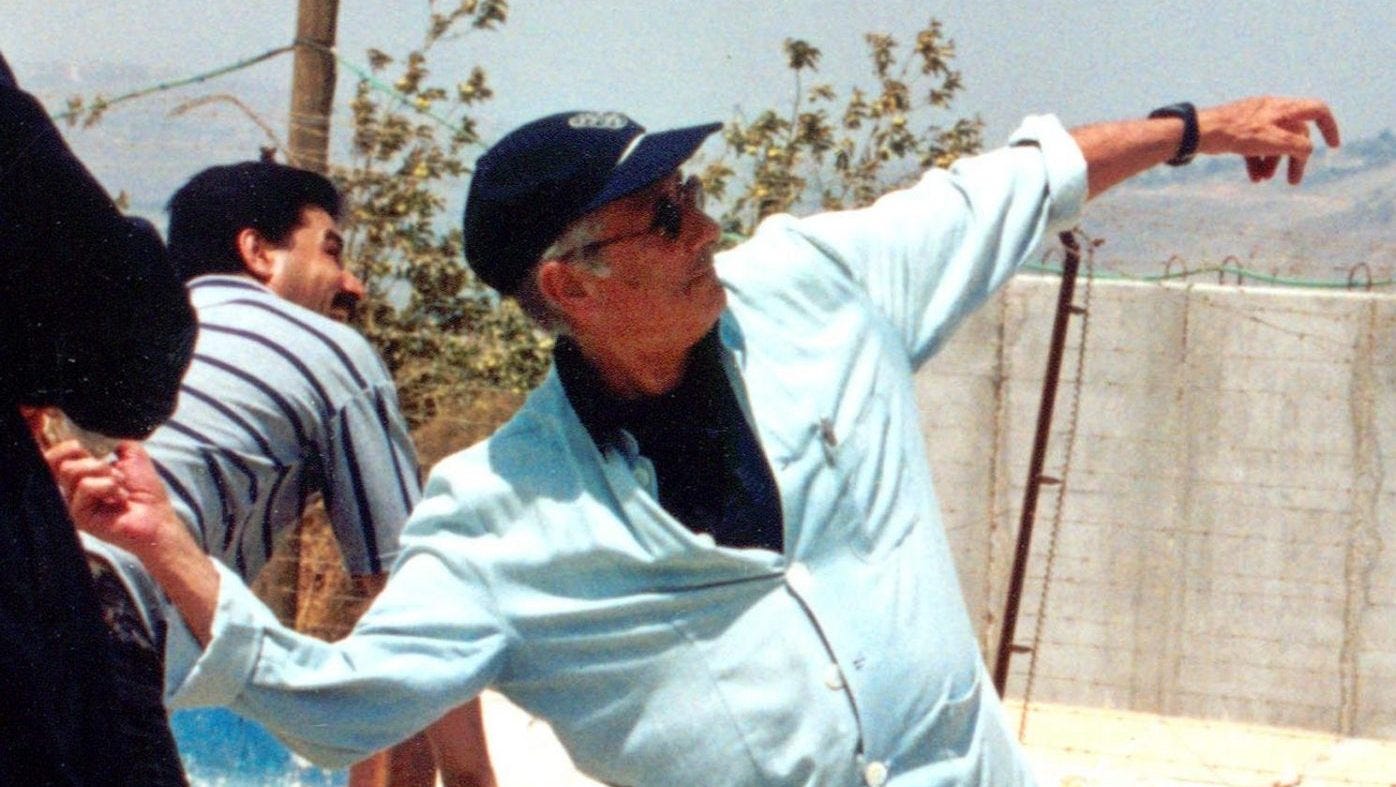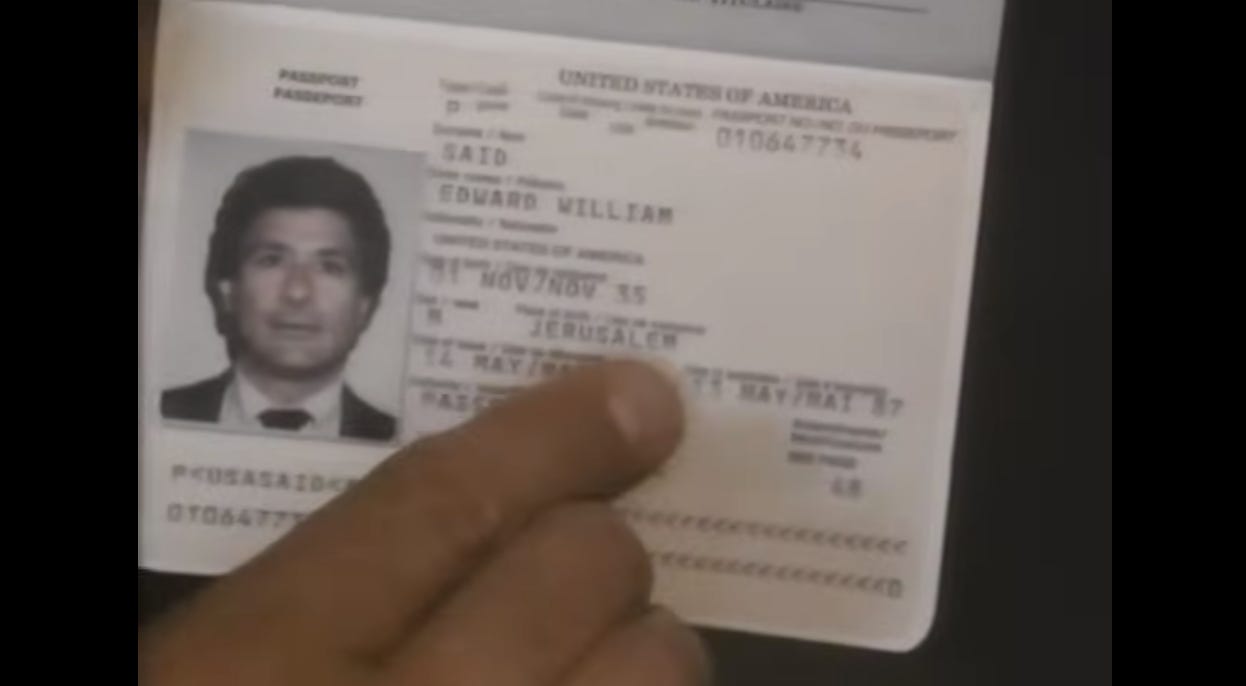[Note from me: Apparently, I can’t schedule a post properly! So here we are. Back to our regularly scheduled programming next week!]
“If you have spent the day, the week, the month and the year opposing, with every cell in your body, the ratification and enactment of the Oslo Accords, which go through in spite of your opposition, and inaugurate an era of unprecedented Palestinian suffering and oppression, you come to Beethoven’s Opus 110 Sonata ready for the heights and the depths, the heartbreak, the despair, and the unfathomable consolations, generosity, and relief of this music.”
— Peter Sellars, in his foreword to Said on Opera
In the BBC documentary Exiles (1988), Palestinian scholar Edward W. Said explains the friction he felt living in New York City: “I feel as if I’m a delinquent…I am somehow guilty as charged.” He not only spent most of his life defending his own existence, but preserving it—that no matter how much his homeland and identity were erased from his passport, from the collective memory or culturally, Palestinians like him still existed. When he died in 2003 from a rare form of leukemia, the “issue” of Palestine was still in question. Edward W. Said wasn’t repatriated to Jerusalem but buried in Lebanon instead.
Six years before his death, Said delivered four lectures on “Authority and Transgression in Opera” at Cambridge University. He planned to publish them as a book. Despite only having the introduction and conclusion left to write, he never did. The lectures were recently edited by Wouter Capitain and published in Said on Opera.
Said’s opera criticism deviates from traditional musicology, in that he makes connections between historical events, power struggles and contemporary society. Operas are not a “series of arias or tunes connected to each other by a generally stupid, melodramatic, or unreal kind of story,” but historical works that could potentially resonate with today’s audiences. The same can’t be said of most “based on true events” movies.
History is always doomed to repeat itself. And Hollywood will keep telling the same stories. It feels like it was just yesterday when Adam McKay’s Vice (2018) and The Big Short (2015) were released. All I can remember was how self-congratulatory they were. How could this happen? How are people this stupid? is what McKay asked through every character breaking the fourth wall. Unlike Said, who believed that high art forms like opera could enlighten and educate contemporary audiences, McKay’s movies alienated them. (Patronizing people doesn’t engage them.)
And here we all are, despite McKay’s condescension, teetering on the verge of another recession with a new set of corrupt politicians (more on that next week). And some even, praising Dick Cheney? Here we are, watching politicians use our tax dollars to fund the destruction of people, instead of investing in education, infrastructure and healthcare.
And what about everyone on the other side of all this? Who has the right to tell their stories and share their pain? And if they do get permission to narrate, will anyone listen? A nation not only sustains itself through destruction but by its mythmaking; a repetition of destructive patterns and forgetting. As Ta-Nehisi Coates recently put it:
“For most of its history, America too was an ethnocracy in democratic clothing. The ostensible triumph over that old system, which we call Jim Crow, is one of the most uplifting stories America tells itself, one that has been repeatedly invoked at the DNC. How odd I find it that a people, presently brutalized by a similar system, whose relatives are being erased by that system’s wanton violence, are also being erased from the stage.”
I’ve put together a list of documentaries, interviews, films and other sources on Palestine. This is in no way a comprehensive list. Please feel free to send me suggestions, and I’ll share them in the weeks to come.
Lina Soualem’s Bye Bye Tiberias
Mohammad Bakri’s Jenin, Jenin
Abdallah Al-Khatib’s Little Palestine (Diary of a Siege)
The Untold Revolution: Food Sovereignty in Palestine
In Search of Palestine – Edward Said’s Return Home
The unpublished genocide diaries of Refaat Alareer
Jumana Manna’s Foragers (thanks to Alicia Kennedy’s essay here)
I also wanted to highlight Filmworkers for Palestine.











Thank you for this Sarah. Foragers is an incredible film — if you ever see it screening anywhere, please watch it. I’m at a film festival right now that is showing TWO Palestinian films. They’ve been very clear about their intention of centring Palestinian voices this year. One of the films, which is now on the festival circuit, is called No Other Land, where a Palestinian man documents Israeli aggression and destruction of his village, Masafer Yatta, over the last ten years, with increasing violence this year.
Another, not Palestinian but that does have beautifully shot scenes in West Bank rock quarries, is Apple Cider Vinegar, which I believe might be on Netflix right now.
Thank you for this list, I hope I can make my way through a few of these films.